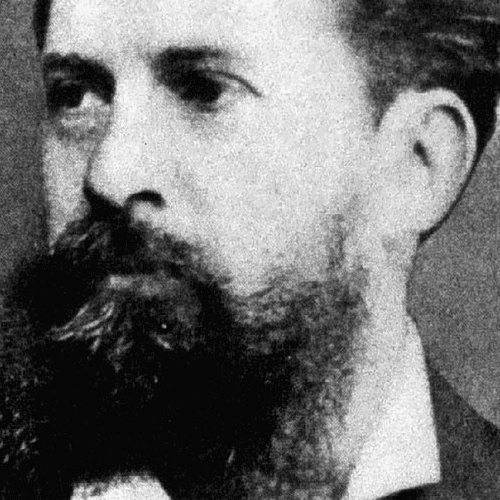In my earlier post, Election Recounts and the Backfire Effect, I refer to the heuristic that has been somewhat controversial. In comments on the piece, which was also published at www.reasonandmeaning.com, I responded to concerns about that effect with the following comments, which Dr. John Messerly, also published on that site as a separate blog post. My comments are replicated below.
I first heard about the “backfire effect” in a work by Michael Shermer, Why People Believe Weird Things: Pseudoscience, Superstition, and Other Confusions of Our Time. Richard Thaler and Cass Sunstein (the authors of the New York Times bestseller, Nudge: Improving Decisions About Health, Wealth, and Happiness
) have also referred to it in various contexts. The effect, in short, maintains that in certain contexts when people are confronted with evidence that disconfirms their beliefs they reject that evidence and double down on their mistaken beliefs. Various research has supported this. But considerable research appears to find it hard to duplicate. So over time, it has become questionable that the effect is as widespread as was earlier thought. And some would question whether it exists at all.
One reason that those of us in the business of reasoning find the idea of the backfire effect disconcerting is that it seems to render a lot of our reasoning and information gathering superfluous. If people are not convinced to change their false beliefs when confronted with better information and better reasoning, then we might wonder why we should bother trying to convince people of anything to begin with. Why appeal to facts and reason if facts and reason aren’t convincing, but are in fact counter-productive. I do not see, though, that those who discuss the “backfire effect” maintain that it exists in all cases. Rather, it is more generally thought to be something that affects certain people in certain specific contexts.
It may be that it’s not even best to frame my observations of what is happening with some Trump voters in reference to this backfire effect. But I do indeed believe that for some of that base, the evidence presented against their views is largely taken and contorted into evidence that confirms some ideas that they already believe. So the efforts to convince that part of the Trump base with its mistakes through evidence-based reasoning are not having the desired effect.
In the last part of the blog post, I note what in part is going on. Some of the members of that Trump base take the incoming information about the failed court cases, for example, and use it to confirm the view that they already have — namely that the courts are corrupt. Or they take the statements from governors and lieutenant governors about the integrity of the election not as evidence that the election has integrity, but as evidence the confirms what they already believe — namely that the governors and lieutenant governors have no integrity. Like Trump says, these career politicians need to be replaced unless of course, they agree with Trump.
This plays out for a particularly ideologically entrenched part of the Trump base. They do hold their beliefs as something akin to religious dogmas. Indeed, the belief in Trump’s integrity, for some, has become a hard and fast part of their identities. So for these members, reasoning and facts have little or no effect, or the opposite of the desired effect. As I note, their views are not falsifiable. I’m not sure what percentage of the 70% of Republicans who think the 2020 election has had considerable fraud (from the Left) fall into this intractable camp.
Other things are going on in any case to re-affirm their beliefs for the short term. For many, the framing of the election through Fox News pundits is having an effect. For many, they are, in line with confirmation bias, seeking out sources of information that confirm their beliefs, and ignoring information sources that challenge those beliefs. So for now they remain in a bubble that reiterates much of what they believe and downplays the types of information mentioned in my piece that challenges their beliefs.
In those social media bubbles, they are more apt to see videos (which in many cases have been demonstrated not to show the fraud that is alleged). Over the long run, I assume a number of these individuals may change their minds. But that depends to some extent on whether there are media sites and social media platforms that continue the massive disinformation that makes it possible for people to shield themselves from better sources of information.
One of the benefits over the long run that may help to decrease the prevalence of false beliefs about the election is that Trump will be removed from office and not have his present platform to spread disinformation. If he is not the standard-bearer for the Republican Party going forward, then his voice will become one of many, more like that of Rush Limbaugh or Sean Hannity, important but not important for all of the party.
Here I’ll mention one other “effect” that will then diminish — the “halo effect” surrounding Trump. I know this is an odd-sounding effect to name in reference to someone as out of sync with culturally widespread views of sanctity as Trump. But that effect is described simply as the tendency that individuals have to assign good qualities to those standard-bearers (say of a Party) who they already think are good and to assign bad qualities to those they already view as bad. Any party leader, as the standard has enormous power.
Partisans want to believe their standard-bearers. They are very strongly predisposed to give him or her the benefit of the doubt and to place blame on the other party. In the case of Trump, the standard-bearer has been a pathological liar. But he still has benefited enormously from this goodwill that people have toward the standard-bearers. Assuming Trump recedes in significance in the Party, his influence over the views of those in the Party will also recede. And there is some chance that a considerable number of Republicans will return to a position of suspicion about Russia (one of the more surprising twists in Republican ideology under Trump)) and that belief in voter fraud may too recede.
But I am not able to read the tea leaves (and I don’t understand the science around decision making) well enough to be sure of how much these views will shift.
By the way, an excellent somewhat skeptical piece on the backfire effect is found in Slate: https://slate.com/health-and-science/2018/01/weve-been-told-were-living-in-a-post-truth-age-dont-believe-it.html


